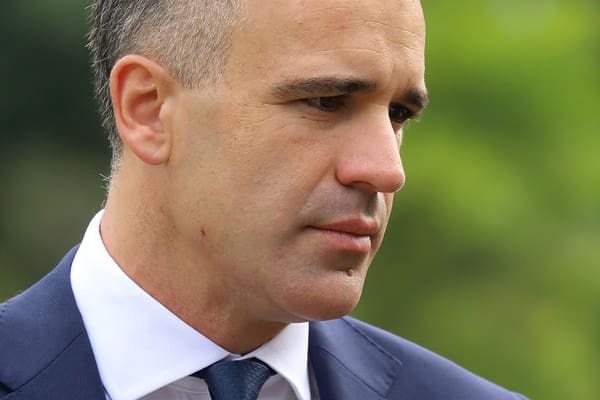South Australian Premier Peter Malinauskas has introduced proposed repressive protest laws to parliament, in a move strongly condemned by activists.
The proposed changes to South Australia’s protest rights legislation would raise the maximum fine for public obstruction to three months in prison or $50,000. The changes, which were quickly passed by the Lower House of the South Australian Parliament, would increase fines for protesting by over 6000%, and introduce the possibility of protestors being imprisoned for peaceful dissent.
Malinasukas’ move came in response to a succession of Extinction Rebellion protests across Adelaide, focussed on the catastrophic effects of climate change. Extinction Rebellion members blocked the roads of Adelaide’s CBD for approximately ninety minutes on Wednesday.
Premier Peter Malinauskas criticised Extinction Rebellion’s protest tactics for being “outrageous and unacceptable” and further announced that the ways that they chose to protest was “out of control”.
Kyam Maher, South Australia’s Attorney General, said that the legislation has been introduced to prevent protesters from blocking traffic in the future. He used the example of an ambulance being unable to get through crowds which would therefore put someone else’s life in danger, despite the ambulances still being able to get through protestors via tram lines.
Both said they would like to see the bill, the Summary Offences (Obstruction of Public Places) Bill 2023 (SA), passed in the Upper House with the support of the South Australian Liberal Party.
Due to Bill’s criminalisation of dissent, human rights advocates have condemned the bill. A representative for the Extinction Rebellion, Anne Slynn, stated that the amendment curtails the citizen’s “absolute and necessary rights to peaceful non-violent protest”. Slynn explained that the new law is to form a distraction from the plans the government is making to increase the “oil and gas production”. According to Slynn, the APPEA [Australian Petroleum Production and Exploration Association] have been liaising with the SA government “all week”.
Thomas Feng, Media and Communications Manager of the Human Rights Law Centre, reports that the new bill “disproportionately criminalises peaceful protests”.





